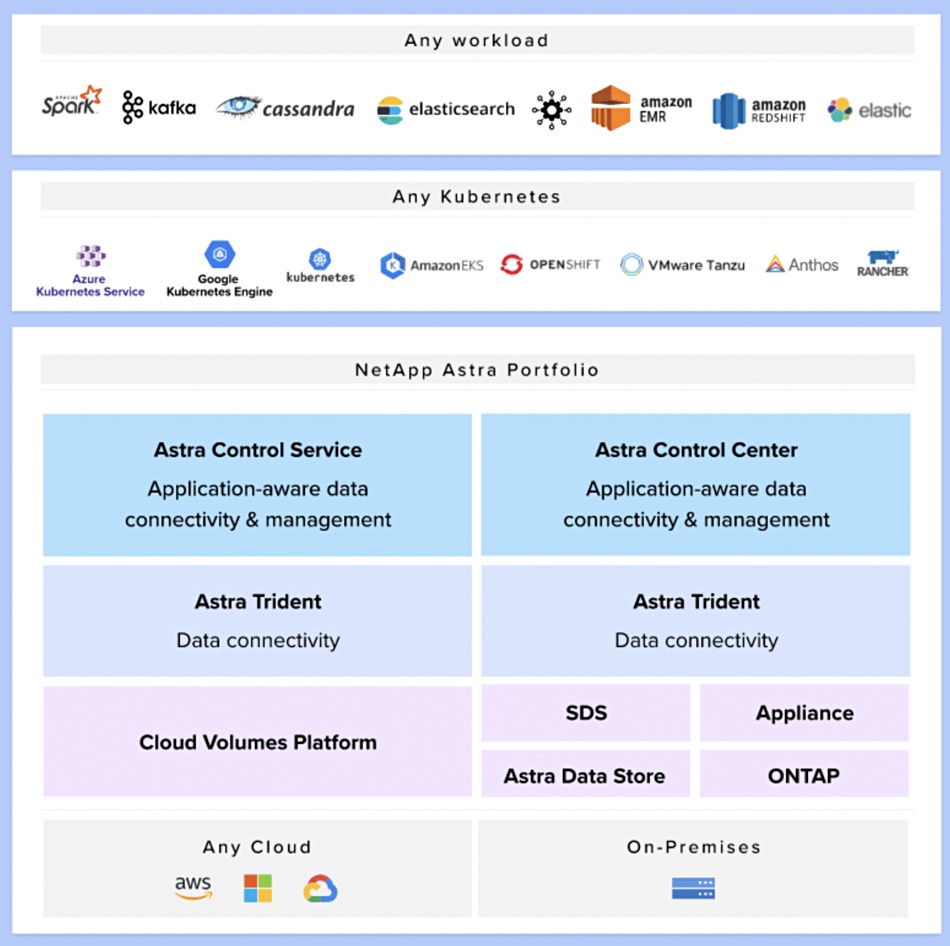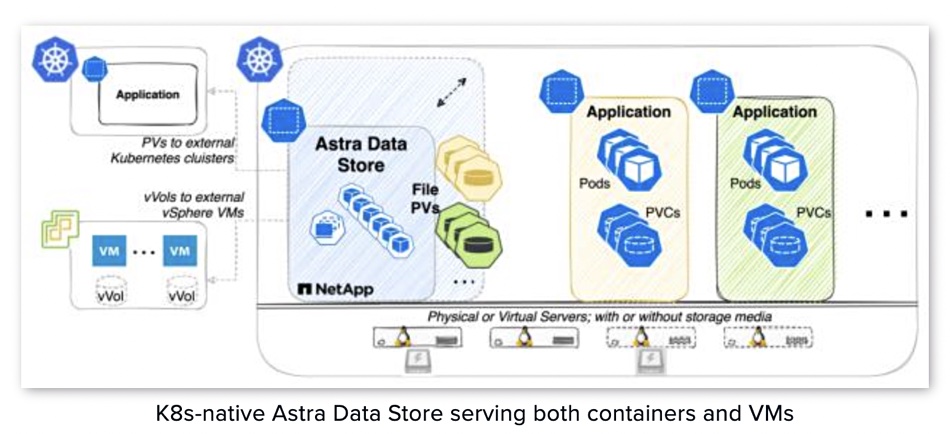NetApp has launched an early access program for its Astra Data Store, cloud-native software providing shared NFS file and block storage to new and old applications, meaning containers and virtual machines.
Astra Data Store (ADS) is part of a portfolio of Astra services for Kubernetes-orchestrated applications providing data connectivity and management to help deliver and deploy cloud-native apps. ADS is NetApp providing software-defined storage within the Kubernetes environment, like Pure’s Portworx, and it complements NetApp’s CloudOps portfolio of products which help customers deploy containerized applications within cloud environments.
A blog by NetApp’s Gunna Marripudi, senior director of Astra Product Management, said: “You need a data foundation that serves your legacy apps while paving a way to the future with microservice-based cloud-native apps … if you’re like most users, you will start by running Kubernetes in your existing virtualized infrastructure. Almost all popular Kubernetes distributions support this deployment model of running Kubernetes inside a VM. Again, your existing VM farm isn’t going anywhere, so let’s take advantage of it and leverage your VM expertise for a bit longer.”

ADS features include:
- Native shared NFS v3 file service (NFS v4 coming)
- Self-service provisioning of shared file volumes for K8s apps and full support for VMware virtual machine storage
- vVols enabled, VM granular storage provisioning with full VASA and SPBM integration
- Deployable on bare metal or in virtualized environments
- Support for upstream Kubernetes, Anthos, Red Hat OpenShift, and vSphere environments
- Integration with Astra Trident and Astra Control Center for end-to-end Kubernetes data management
- vCenter plug-ins for vSphere native management

Another NetApp blog explains that ADS is built on a service-based composable architecture integrated natively with the Kubernetes control plane. It automatically initializes loosely coupled services as needed. Its design decouples data management services (application data management and data lifecycle functions) from storage management services (data and metadata block management, data reduction techniques, redundancy, fault tolerance and device management).
The data management services can scale with applications as part of the application fault domain, while the storage management functions remain part of the storage fault domain and scale accordingly.
The software has a data protection scheme with replication, erasure coding and instant clones, as the blog explains: “Every block of your data is replicated within the cluster based on fully customizable protection domains (availability zones). Your system is protected against node, rack, or entire availability zone failure. To enable automatic recovery, your system proactively monitors and auto heals at node, rack, and availability zone granularity. To complement the replication, each replicated block is further redundancy-encoded within the node. This approach enables protection and recovery from local drive failures or from bad blocks reported by the drive firmware. Astra Data Store can locally repair such data or data blocks within the node, thereby avoiding large internode data transfers to rebuild your data.”
All this means Astra Data Store provides linear scaling of the file system with compute and storage resources. NetApp says ADS offers Kubernetes-native multiple parallel file systems on the same resource pool to achieve cloud-like scale and utilization. And customers can bring their own hardware.
Integration with NetApp Cloud Insights delivers observability, analytics, and monitoring for workload and infrastructure optimization.
The no-charge Astra Data Store Early Access Program is available to customers running cloud-native applications in Kubernetes bare-metal and vSphere environments. Sign up here on a first-come-first-served basis. Download a Solution Brief here and access preview documentation here.








